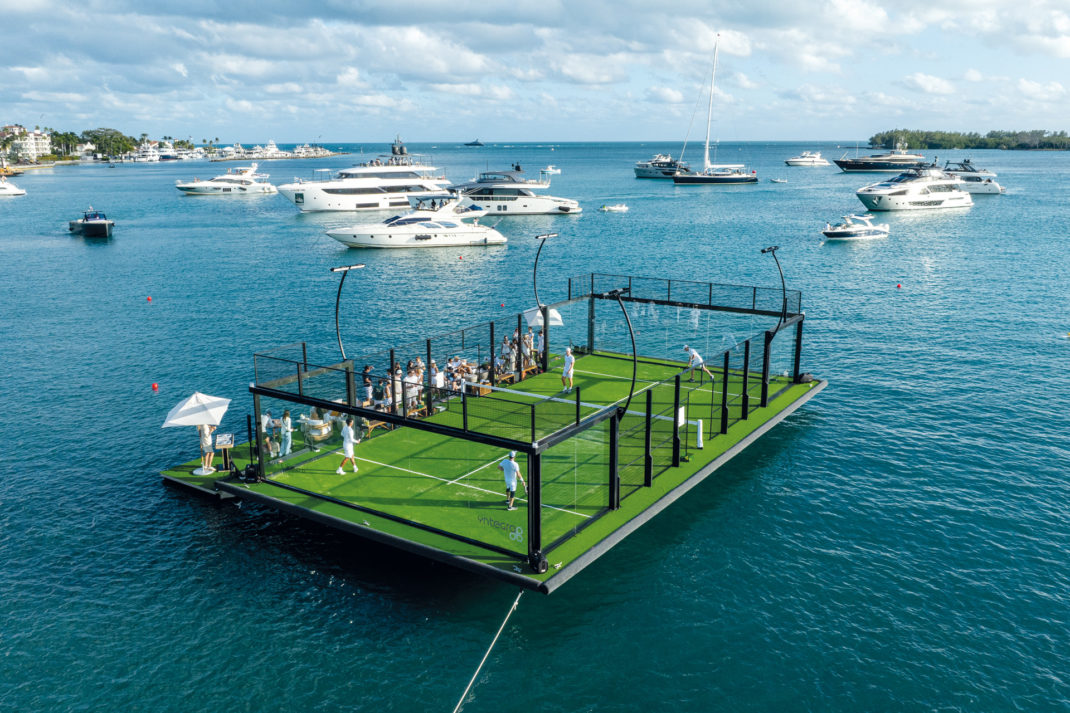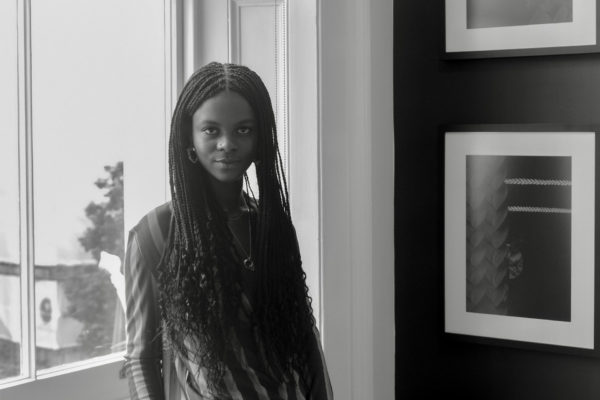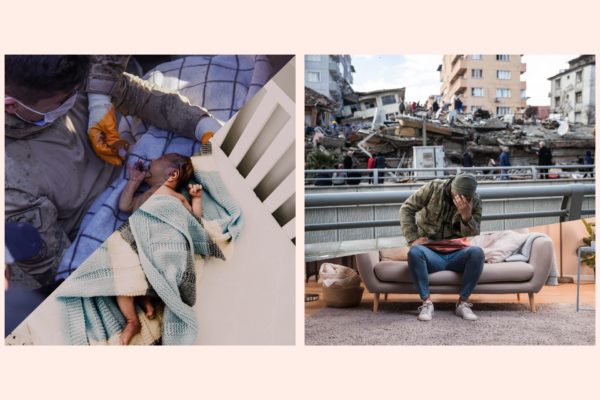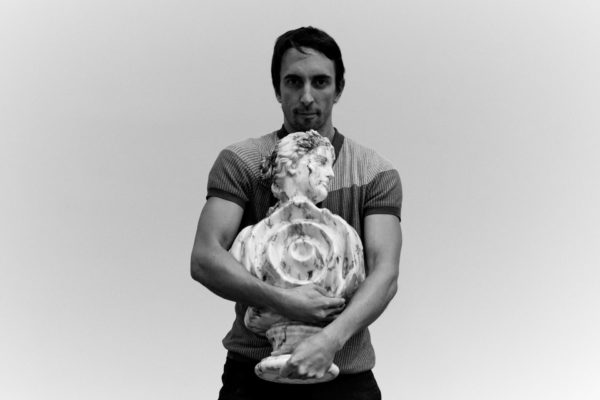Meet Marine Tanguy, The Entrepreneur Taking The Art World By Storm
By
2 years ago
The French Art Entrepreneur is a name to know
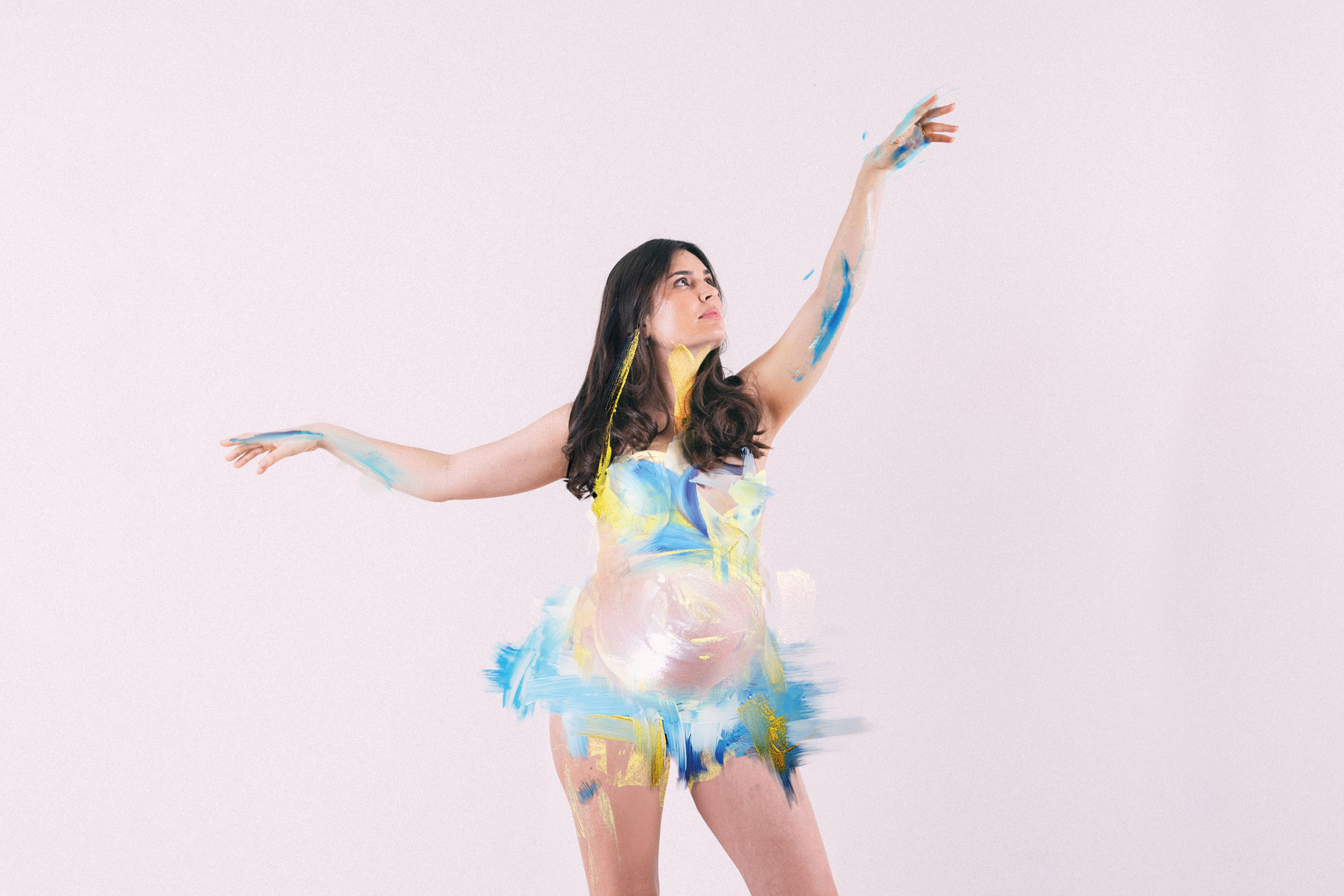
Amy Wakeham talks leadership and life lessons with art entrepreneur Marine Tanguy.
Meet Marine Tanguy, The Art Entrepreneur You Should Know About
From socialist upbringing to industry-disruptor
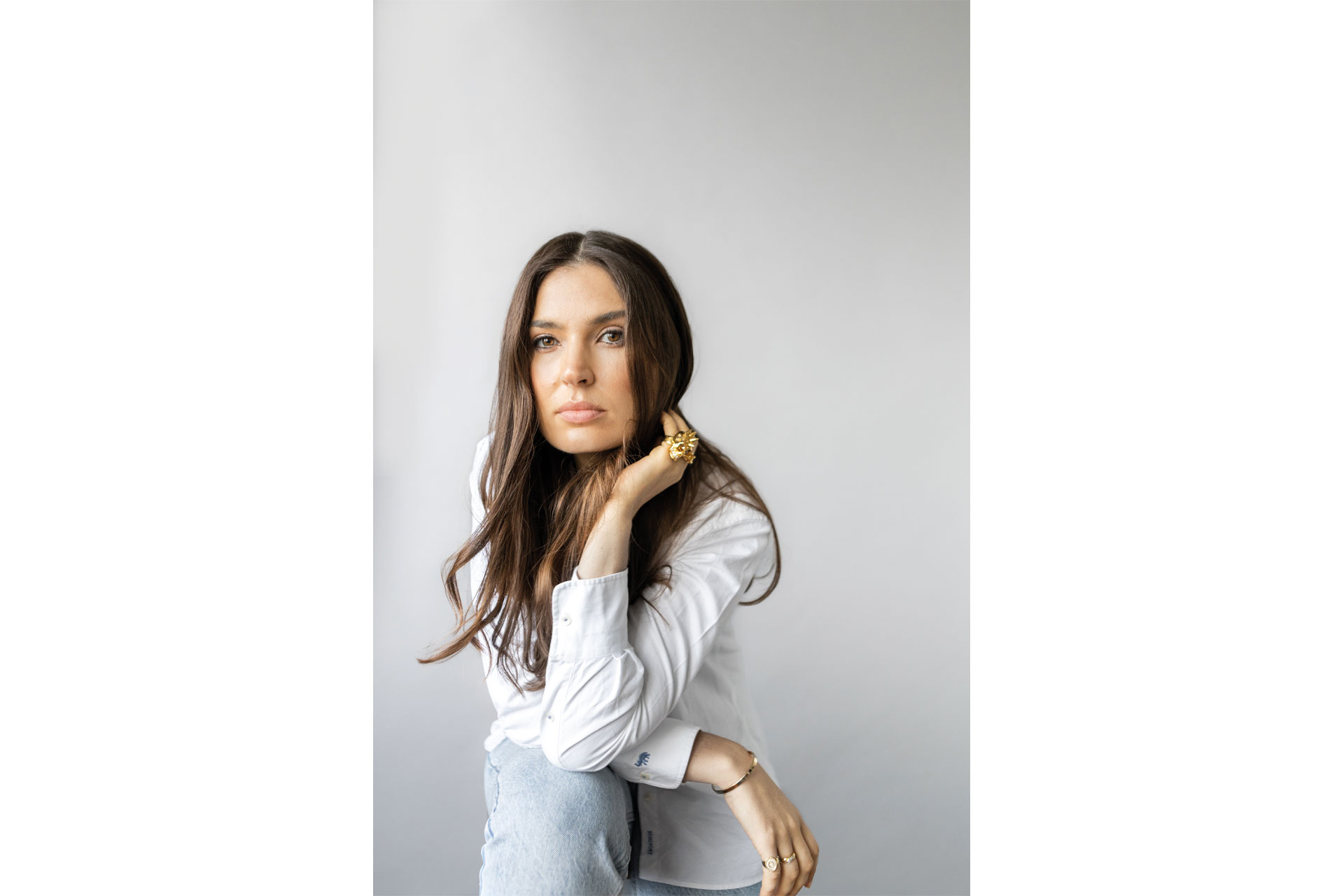
Marine Tanguy is the name in art to know.
In wet-look leggings, heeled boots and a fluffy jumper cropped above her baby bump, French art entrepreneur Marine Tanguy is the image of low-key Gallic style when we meet in her Marylebone townhouse office. We sit down to chat in a light-flooded gallery-cum-board room bedecked with paintings, sculptures and light installations from her stable of artists.
Although she might not look like a stereotypical grey-suited CEO, the London-based entrepreneur’s success is undeniable: she helms one of the fastest growing companies in the UK, now worth £35 million and counting. Marine herself appeared on Forbes’ 30 Under 30 list back in 2018, and has done two TEDx talks on transforming cities with public art, and how social media images affect our minds.
All very impressive for a woman with no initial industry connections, who grew up on the tiny French island of Île de Ré with parents who were teachers. She describes her upbringing as ‘socialist’, a worldview that helped her explode onto the art scene when she hadn’t yet finished university: she left her degree in art history at Warwick after two years, and was running a gallery in Soho by the age of 21.
‘I didn’t understand social classes because I didn’t come from them. The socialist vision of the world is that we’re all equal, and this meant I wasn’t intimidated by celebrity, or high class people, when I was 19,’ she explains.
By 26, in 2015, she had founded her own industry-disrupting agency MTArt. Today, her company manages global talents such as climate artist David Aiu Servan-Schreiber, sculptor Lorenzo Quinn and AI innovator Leo Caillard, who created the cover for C&TH’s very own Great British Brands 2023.
The Annus Horribilis
But despite all the success and accolades, it’s fair to say 2022 was Marine’s annus horribilis. It started when she broke her leg going into another round of fundraising for her business, a day before the opening of the Venice Biennale – she flew out on morphine and crutches. Shortly after she found out she was pregnant with her second child – beautiful news, but added stress in an already overwhelming year.
Then in late September what she describes as ‘cyberbullying’ started. Anonymous stories were posted on the Instagram page @BalanceTonAgency, a French account that shares allegations of harassment in communication and PR agencies. They accused Marine of everything from fiscal fraud to identity theft to bullying, and even infidelity to her partner of eight years, tech investor Will McQuillan.
The salacious accusations were picked up in Le Monde, the only publication that reported them. ‘Defamation laws are stronger in the UK so you wouldn’t be able to do that here,’ says Marine. But that didn’t stop the allegations from impacting her business, and her team.
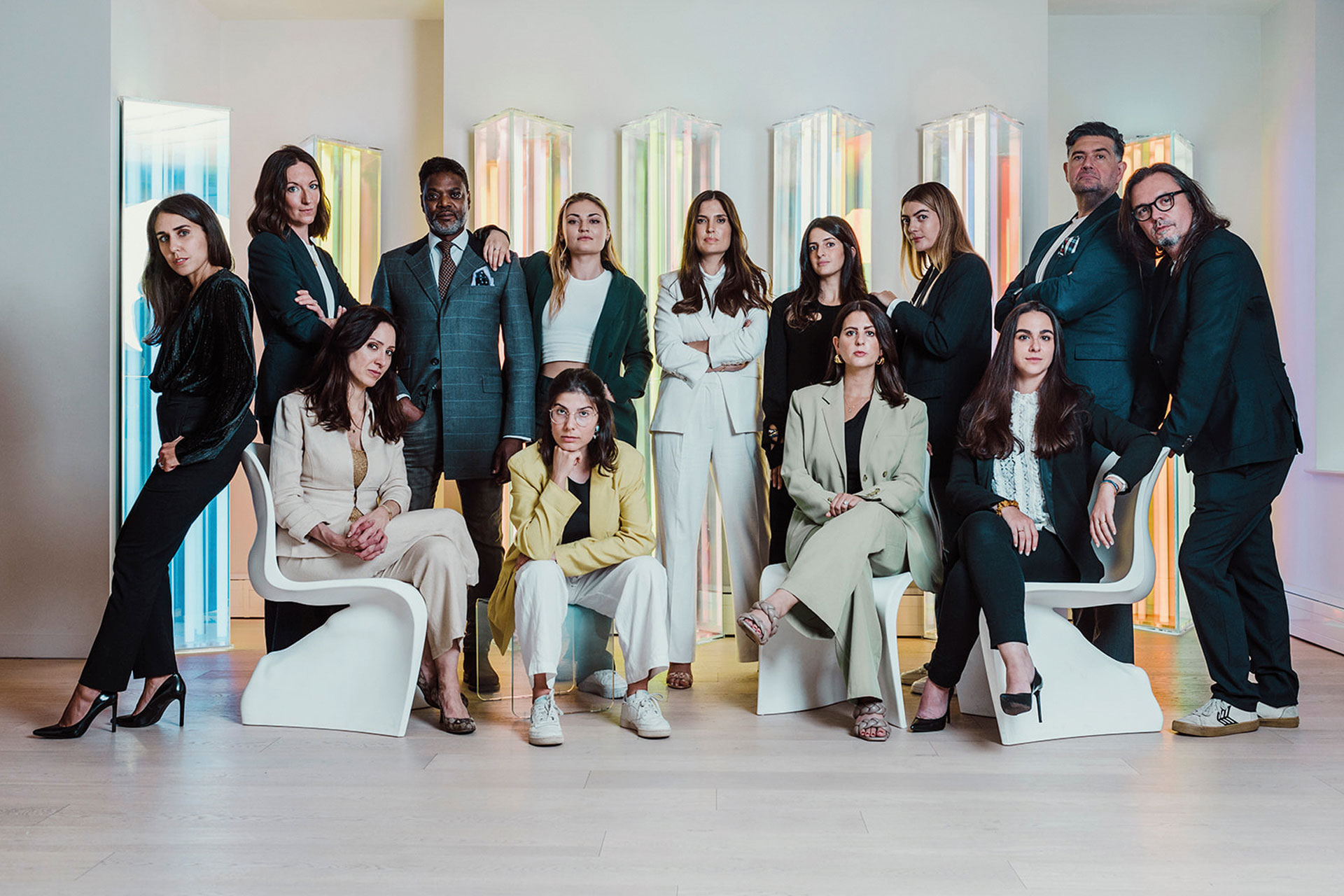
MTArt Agency are industry-disruptors.
‘It’s really hard when it’s a public opinion case. You can’t just go,“Let’s sit down and go through the facts”,’ says Marine. ‘I think it’s to mentally break you, and to destabilise your company. None of my team members left, but one of them could have.’
She reflects on the gendered nature of the accusations and subsequent online abuse. She especially dislikes that Le Monde ran a picture of her from nine years ago at the head of its article. ‘Why is it my picture? Why isn’t it my business’ logo? Why was it not an interview with my current employees?’
She compares her experience to that of Audrey Gelman, the founder of women’s-only members club The Wing. Gelman resigned as CEO in June 2020, after complaints about the racist behaviour of its members, and an employee walkout.
‘I remember opening up to some of my girlfriends about how I felt really uncomfortable about the way she was being taken down [on social media]. And it was at the same time we found out that the founder of WeWork [Adam Neumann] had extorted millions from his investors. But for her I was seeing a defamation of her character rather than an assessment of her business.’
Changing faces
But the experience of cyberbullying was also a learning curve – and to get through it she had to drop the businesswoman façade she’d carefully built over years of fundraising and investor meetings.
‘I’ve had to be vulnerable and ask for help, which I’m really bad at,’ she says. ‘But the only way out was to be transparent – I said to my team, “don’t just take my word for it”, and I asked our lawyers to research everything [I was accused of] so they could see. It’s hard because you’re built as a founder to show no emotion.’
Being three months pregnant at the time was an added layer of difficulty. ‘You have a sense, especially when you’re pregnant, that you don’t want to jinx it, you don’t want to collapse, and you can’t collapse because you look after multiple people in multiple units – a family one and a company one. So it forces you to ask for help because there’s too much at risk if you collapse. That was a great lesson.’
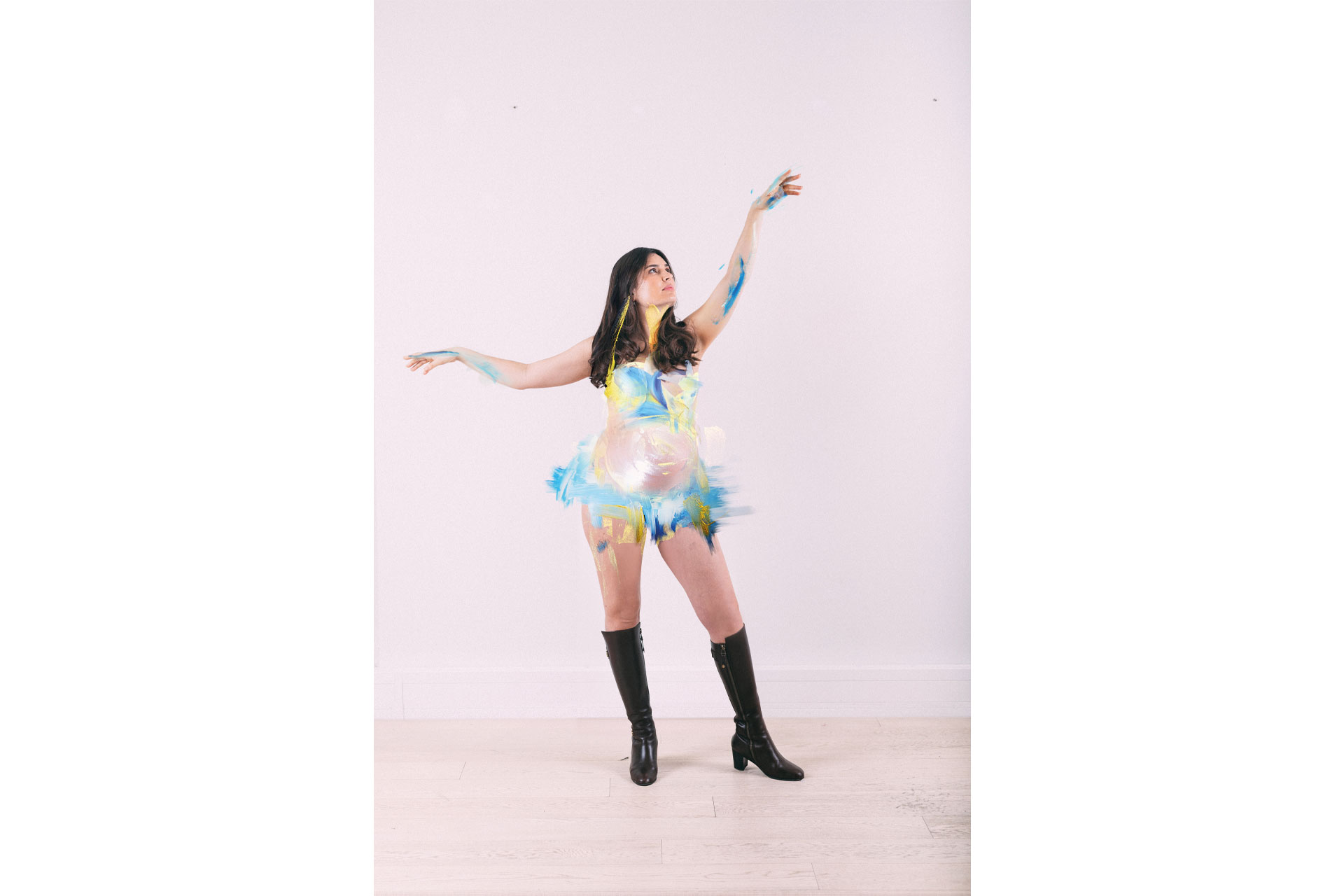
Marine was captured by photographer Alexandra Dao. The image encapsulates the idea that women can do it all: nude to reveal her pregnancy, and an expression of vulnerability and femininity; the paint to represent art; and the boots to represent Marine’s strength, career, business, and mindset.
Dropping the CEO ‘façade’, as she calls it, will be essential for the next phase of her business. ‘I think I survived stage one of my company with that façade, but going into stage two, now we’re scaling, I’m having to break it. At first you have to pretend everything is perfect, even though it’s really hard and you can’t confide in anyone because you’re trying to build a company. But now I’m at the stage where I have an amazing team and I need to confide in them.’
Although passionate about female leadership, Marine is conscious that the different treatment men and women receive in business – as exemplified by the cyberbullying she received – prevents many girls from aspiring to become leaders.
‘It’s the backlash that women founders face or female businesses face versus what a man faces,’ she says. ‘So I understand why [women] might not want to take that route. But I think that’s frustrating as it benefits a system that’s already not set up for us.’
Asking Girls To Get Competitive
She thinks another reason for the lack of female founders is that girls aren’t socialised to be competitive – an idea she first read in a book called In the Company of Women by Grace Bonney, ‘which should be read by most men and women.’ For girls, ‘their worst nightmare is to be ostracised from the group. So they’re taught to never go into conflict.’ She continues: ‘We need to teach competition, that the workplace is competitive, but that doesn’t have to be unhealthy. Women aren’t taught how to resolve conflict because we are taught to be pretty and smiley and lovely.’ She adds: ‘Lashing out by calling five of your girlfriends who will then just team up against the other woman is problematic.’
Although Marine thinks it’ll take another year to fully accept what happened in 2022, she says she is ‘prepped for the next crisis’. There’s – naturally – lots more business growth on the agenda, and she’s writing a book for Penguin, to be released in January 2024, a follow on from her TEDx talk about how social media visuals affect the mind. She is also looking forward to a new start with the birth of her second child this March. He’ll be called Vivaldi, after the composer who, ‘while he had health issues, overcame his condition with his music’.
She continues: ‘Listening to Spring of the Four Seasons literally pulled me and his father out of any challenges as it gave me that little bit of hope, resilience and strength. We hope to pass on that same resilience, hopeful nature, optimism and love that make us a couple, with his name. And just like spring, it’s a pure celebration of life and hope over anything else.’
Marine came up with the name with a couple of her artists (the duo Walter & Zoniel) back in October, as the cyberbullying fallout was at its peak. ‘Asked how I felt then towards my pregnancy, I kept saying, “it’s like the four seasons: it will pass and I shall look forward to spring”.’ mtart.agency
Portrait by ALEXANDRA DAO.

